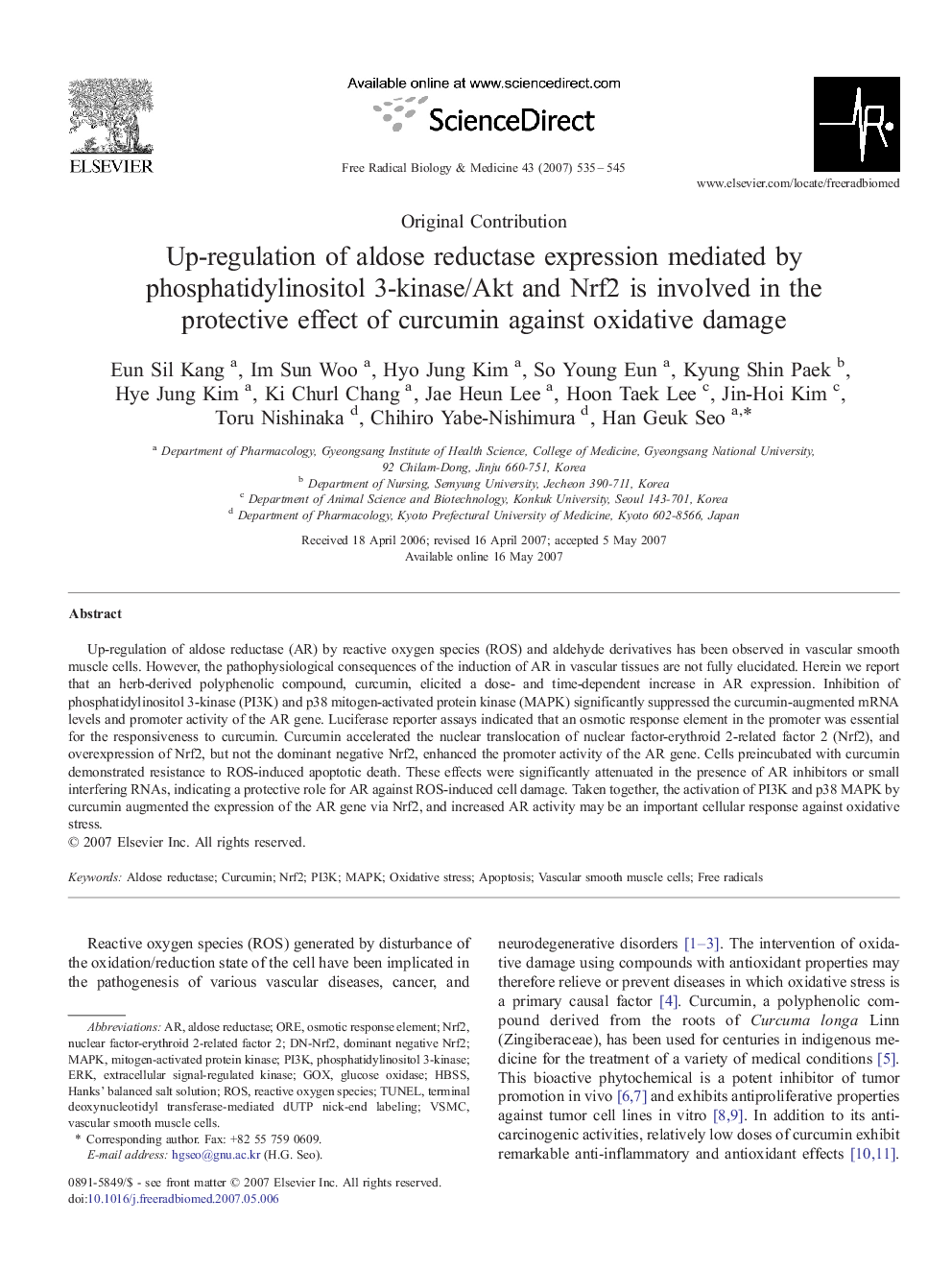| Article ID | Journal | Published Year | Pages | File Type |
|---|---|---|---|---|
| 1911054 | Free Radical Biology and Medicine | 2007 | 11 Pages |
Up-regulation of aldose reductase (AR) by reactive oxygen species (ROS) and aldehyde derivatives has been observed in vascular smooth muscle cells. However, the pathophysiological consequences of the induction of AR in vascular tissues are not fully elucidated. Herein we report that an herb-derived polyphenolic compound, curcumin, elicited a dose- and time-dependent increase in AR expression. Inhibition of phosphatidylinositol 3-kinase (PI3K) and p38 mitogen-activated protein kinase (MAPK) significantly suppressed the curcumin-augmented mRNA levels and promoter activity of the AR gene. Luciferase reporter assays indicated that an osmotic response element in the promoter was essential for the responsiveness to curcumin. Curcumin accelerated the nuclear translocation of nuclear factor-erythroid 2-related factor 2 (Nrf2), and overexpression of Nrf2, but not the dominant negative Nrf2, enhanced the promoter activity of the AR gene. Cells preincubated with curcumin demonstrated resistance to ROS-induced apoptotic death. These effects were significantly attenuated in the presence of AR inhibitors or small interfering RNAs, indicating a protective role for AR against ROS-induced cell damage. Taken together, the activation of PI3K and p38 MAPK by curcumin augmented the expression of the AR gene via Nrf2, and increased AR activity may be an important cellular response against oxidative stress.
